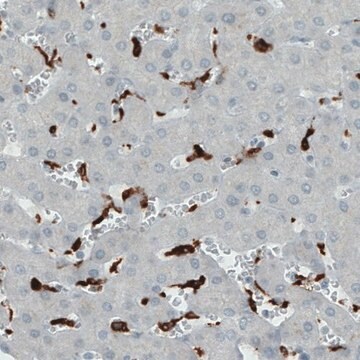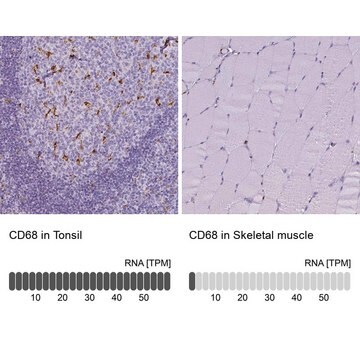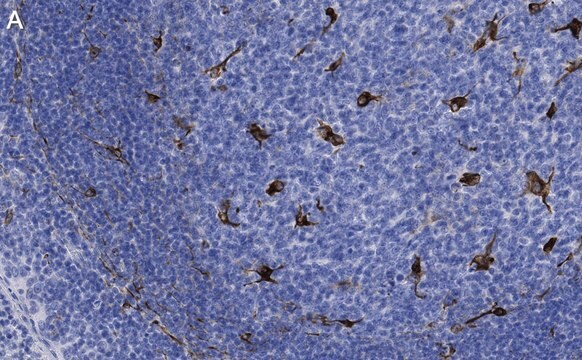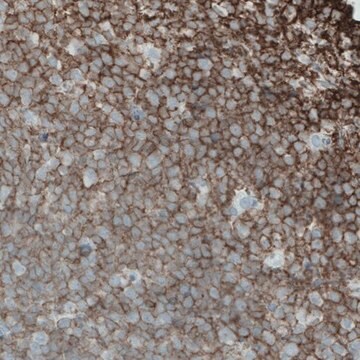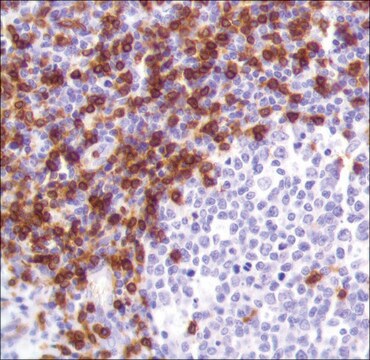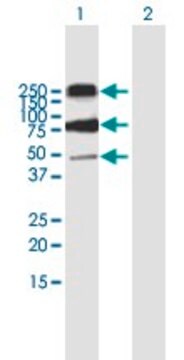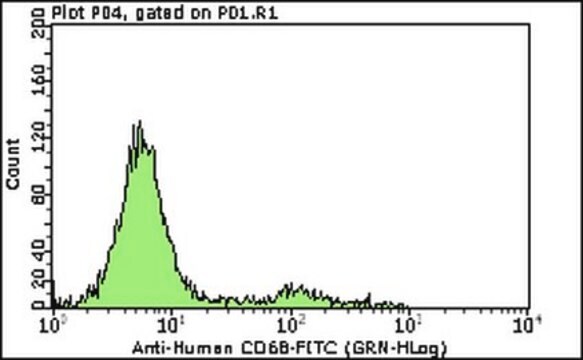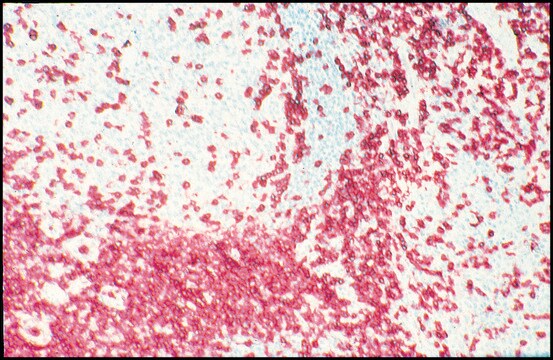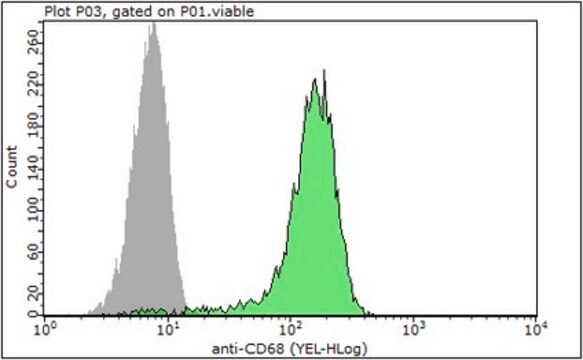AMAB90874
Monoclonal Anti-CD68 antibody produced in mouse

Prestige Antibodies® Powered by Atlas Antibodies, clone CL1346, purified immunoglobulin, buffered aqueous glycerol solution
Sinônimo(s):
Anti-DKFZp686M18236, Anti-GP110, Anti-LAMP4, Anti-SCARD1, Anti-macrosialin
About This Item
Produtos recomendados
fonte biológica
mouse
Nível de qualidade
conjugado
unconjugated
forma do anticorpo
purified immunoglobulin
tipo de produto de anticorpo
primary antibodies
clone
CL1346, monoclonal
linha de produto
Prestige Antibodies® Powered by Atlas Antibodies
Formulário
buffered aqueous glycerol solution
reatividade de espécies
human
validação aprimorada
RNAi knockdown
Learn more about Antibody Enhanced Validation
técnica(s)
immunoblotting: 1 μg/mL
immunohistochemistry: 1:1000- 1:2500
Isotipo
IgG1
sequência de imunogênio
SPTSKETIGDYTWTNGSQPCVHLQAQIQIRVMYTTQGGGEAWGISVLNPNKTKVQGSCEGAHPHLLLSFPYG
nº de adesão UniProt
aplicação(ões)
research pathology
Condições de expedição
wet ice
temperatura de armazenamento
−20°C
modificação pós-traducional do alvo
unmodified
Informações sobre genes
human ... CD68(968)
Categorias relacionadas
Imunogênio
Aplicação
The Human Protein Atlas project can be subdivided into three efforts: Human Tissue Atlas, Cancer Atlas, and Human Cell Atlas. The antibodies that have been generated in support of the Tissue and Cancer Atlas projects have been tested by immunohistochemistry against hundreds of normal and disease tissues and through the recent efforts of the Human Cell Atlas project, many have been characterized by immunofluorescence to map the human proteome not only at the tissue level but now at the subcellular level. These images and the collection of this vast data set can be viewed on the Human Protein Atlas (HPA) site by clicking on the Image Gallery link. We also provide Prestige Antibodies® protocols and other useful information.
Características e benefícios
Every Prestige Antibody is tested in the following ways:
- IHC tissue array of 44 normal human tissues and 20 of the most common cancer type tissues.
- Protein array of 364 human recombinant protein fragments.
Ligação
forma física
Informações legais
Exoneração de responsabilidade
Não está encontrando o produto certo?
Experimente o nosso Ferramenta de seleção de produtos.
Código de classe de armazenamento
10 - Combustible liquids
Classe de risco de água (WGK)
WGK 1
Ponto de fulgor (°F)
Not applicable
Ponto de fulgor (°C)
Not applicable
Escolha uma das versões mais recentes:
Certificados de análise (COA)
It looks like we've run into a problem, but you can still download Certificates of Analysis from our Documentos section.
Se precisar de ajuda, entre em contato Atendimento ao cliente
Já possui este produto?
Encontre a documentação dos produtos que você adquiriu recentemente na biblioteca de documentos.
Global Trade Item Number
| SKU | GTIN |
|---|---|
| AMAB90874-100UL | 4061837048357 |
| AMAB90874-25UL | 4061841686613 |
Nossa equipe de cientistas tem experiência em todas as áreas de pesquisa, incluindo Life Sciences, ciência de materiais, síntese química, cromatografia, química analítica e muitas outras.
Entre em contato com a assistência técnica
